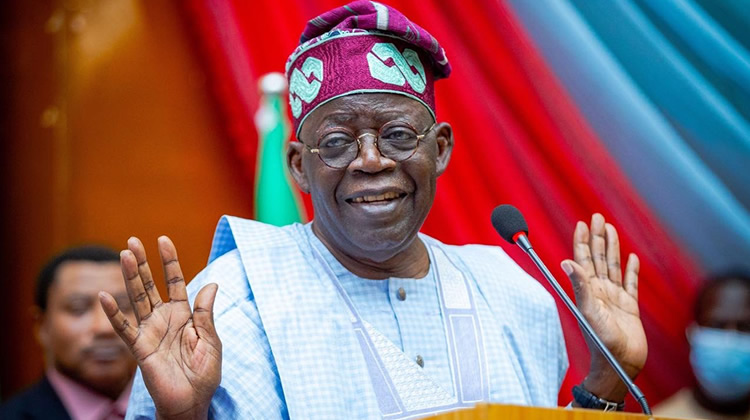To some Nigerian citizens, their new president is a character who believes that what money cannot buy, more money can buy. And what more money cannot buy, some selfishly and corruptly created business and political monopolistic conditions can buy.
Though the source of his wealth remains questionable and believed to be procced of public funds diversion during his time as governor of Lagos State from 1999 to 2007, Bola Ahmed Tinubu is one of Nigeria’s most powerful and wealthiest men, sometimes called the “biggest landlord in Nigeria.”So when, on June 8, he signed a constitutional amendment bill harmonising the retirement age and pension rights of judges across courts in Nigeria just nine days into office, the alarm bells started ringing, with some Nigerians calling the gesture an attempt to bribe Nigerian judges.
The amendment bill he signed into law was a piece of legislation worked on by the immediate past 9th Assembly of the House of Representatives and Senate.
The 10th Assembly has yet to fully begin legislative functions as it elected its leadership earlier today.The quick question was, why did he rush to sign the bill affecting judges when even more pressing issues required presidential assent?
For example, the Peace Corps bill that seeks to establish the Nigerian Peace Corps as a security force to complement the effort of the police in combating crime in a country where nowhere appears safe has been without presidential assent for the last four years.Many citizens and groups had advocated for and pleaded with former president Mohammadu Buhari to sign the Peace Corps Bill to law as its creation is projected to lead to the employment of hundreds of thousands of youths in a country with a staggering 33% unemployment rate.
Why would Tinubu bribe judges?The February 25, 2023, election that produced Tinubu is considered as one of the most disputed elections since Nigeria returned to democracy in 1999. Before the election, the Independent National Electoral Commission or INEC had promised that all election results would be transmitted electronically to its result viewing portal or iREV.But on election day, while INEC staff on the field were able to transmit the Senate and House of Representatives results electronically using the Bi-Modal Voters Accreditation Machine System (BIVAS), they could not transmit that of the presidential election across the country, raising concerns that INEC intentionally programmed it that way to make room for result manipulation through manual collation.
Another contenting issue at the court is Tinubu’s failure to get at least 25% of votes in Abuja, the capital territory. Opposition parties insist that it is a constitutional requirement to be president. Peter Obi of the Labour Party and Atiku Abubakar of the People’s Democratic Party or PDP, are currently challenging the declaration of Tinubu as president at the Presidential Election Petition Tribunal or PEPT.
When Tinubu signed the bill harmonising the retirement ages of judges, many Nigerians said his actions were calculated to bribe judges to favour him as he defends his election at the PEPT and later at the Supreme Court.
Their scepticism might be in order because the Supreme Court had in the past relied on minor technical issues to deliver what some Nigerians called “bought judgements”.In 2018, for example, it relied on technicalities to declare Hope Uzodinma, the candidate of the ruling All Progressives Congress or APC, the winner of the Imo State governorship election, despite coming a distant fourth.
The judgement cut short the reign of PDP’s Emeka Ihedioha, who had initially polled the highest votes. Similarly, the Supreme Court recently declared Ahmed Lawal, the Senate President in the 9th Assembly, as the winner of APC’s Yobe North senatorial ticket even though he never contested in the primaries that produced Bashir Machina.
But Tinubu has nothig to gainDoes Tinubu really have anything to gain from signing the bill? Well, Prime Progress check shows there is nothing in it he stands to gain directly.
Here is why.Post-election matters involving the presidential election are determined by Appeal Court judges at the PEPT and judges at the Supreme Court.Before Tinubu signed the law, the retirement ages of Appeal Court and Supreme Court judges were already 70. And the newly signed law harmonising the ages of judges affects only judges of lower courts (federal, state, industrial courts and Sharia Court of Appeal) who, until now, were retired at age 65.
With the new law, all judges, except those of inferior courts (magistrate and customary courts) that are not under the supervision of the National Judicial Council, will now retire at age 70.Conclusion: Tinubu’s signing of the bill was not a bribe.






